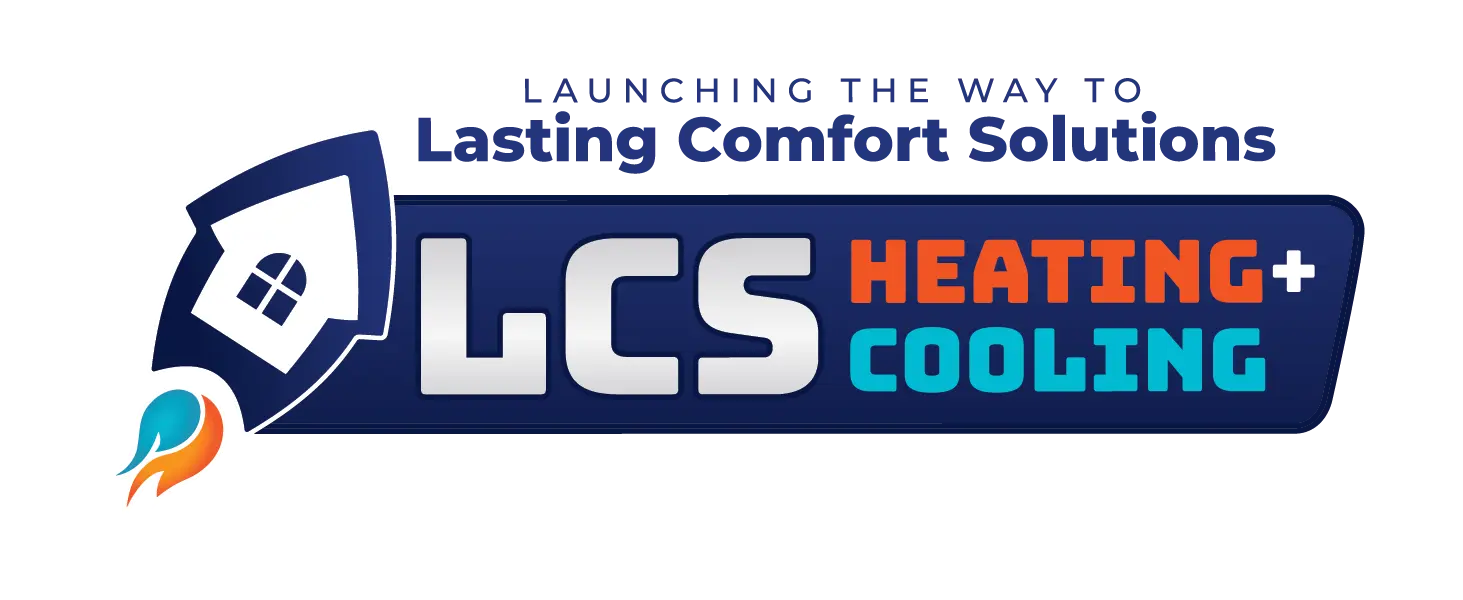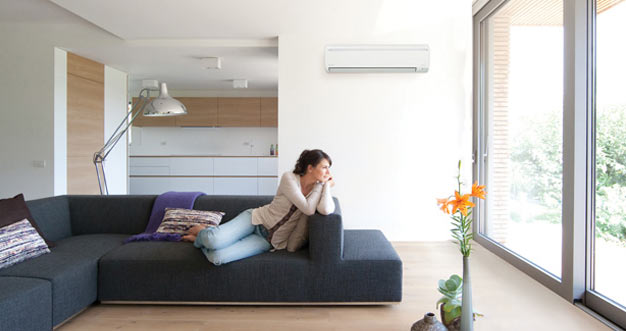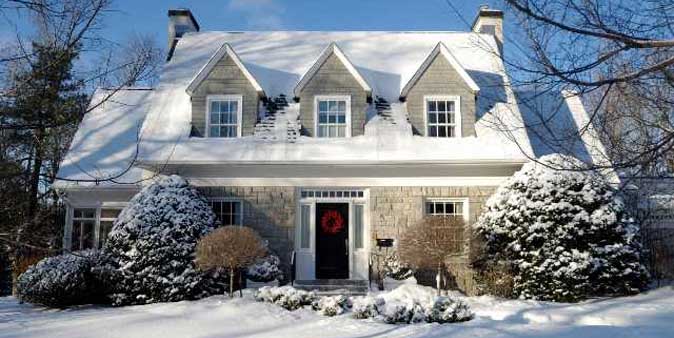The last thing on anyone's mind right now is HVAC. It's too warm to need the furnace and too cool to need the air conditioner. We do live in Indiana though so that can change in just 24 hours! We want to provide some tips for things you can do on your own to keep your furnace and air conditioner running at its best. We present the LCS Top Ten of Homeowner DIY HVAC Tips:
10. During cold or hot months, keep the programmable thermostat set within 3 degrees of each setting. A furnace and air conditioner will have to run for a very long time to make up the temperature difference. If you have an electric furnace
and heat pump, the electric furnace will come on as well to reach the set temperature. Since an electric furnace runs at a higher cost, it counters the savings that you might have had with the lower initial temperature.
9. Keep the weed eater and lawn mower away from the control wiring of the air conditioner. The wiring should not be hanging down but if it is, be careful when mowing and weed eating. It's not a high voltage wire but if it gets cut with a weed eater or mower, you can get shocked and it can take out the air conditioner. If the wiring is loose or hanging down, tie it up with electrical tape or have a technician tie it back when they're out doing annual maintenance.
8. If you are experiencing high utility bills, call the gas or electric company first. Ask the utility company if there's been an increase in the therm or electric rate. Ask if your bill compares to the average of others in your neighborhood. You can get great information about what your utility bill should be running. If there isn't a good reason for the higher bill, then it might be time to have a technician out to make sure the system is operating properly.
7. Move furniture away from registers. It's not uncommon to see a couch over a register or a bookcase pushed up against a register. Not only can the heat dry out your furniture but it also prevents the air from properly traveling throughout the rooms.
6. Keep registers open. A very common problem in two story homes is a temperature swing between the upstairs and downstairs. Homeowners try to fix this problem by closing registers upstairs or in some rooms. Keep the registers open. Closing registers can restrict air flow and cause the furnace to run hot. This can ultimately shorten the life of parts inside the furnace such as motors. It can also make the air conditioner freeze up by reducing the volume of air that the system needs to expel throughout the house. This is comparable to running the system with a dirty filter.
5. If you notice a noise, smell or problem, call on it right away. If you notice something unusual, don't ignore it. It's rare that an HVAC issue will go away or resolve itself. Noises and smells often mean that a part is getting weak or going out. A little critter could also have gotten inside. Address these issues before your furnace or air conditioner goes completely out. It's no fun being without heat on a cold day or without a/c when it's hot out!
4. Keep dogs away from the air conditioner. Animal urine will degrade the a/c fins. There's not much that can be done to fix the fins once this happens so it's best to make sure the fur babies stay away.
3. Replace the batteries in the thermostat. If the thermostat goes blank, check to see if there are batteries that need changed. Not all thermostats have batteries, but if it does, it's likely AA or AAA batteries that need changed.
2. Pick up leaves that are around the air conditioner or heat pump. Leaves, cottonwood, branches, etc can gather around the air conditioner. Keep these things cleaned away so the outdoor unit can breathe.
1. CHANGE THE FILTER! This is the number one thing to do to keep your furnace and air conditioner running efficiently! A dirty filter causes restricted air flow and can ultimately cause the system to stop working. If you have a 1" filter, check it once a month. If you have a 4-5" filter, check it every 3 months. It may not need to be changed at that time but it's good to check it to make sure. It's also a good idea to keep extra filters at the house. That way, you always have one on hand when it's time for it to be changed.
A couple of other tips are to caulk or re-caulk around windows and doors. It's also a great idea to check the insulation in your home. If you don't have at least 12-15" of insulation in the attic, you'll want to consider adding more!
Keeping up on these things can not only save you money but can save you from the inconvenience of being without heating or cooling during those hot and cold months. HVAC equipment is definitely an investment. Protect your investment by following our Top Ten tips!
April 23, 2015
We've received several calls this winter about rising utility costs. People have been concerned because they're seeing upwards of $400-$500 electric bills. Yikes! We'd like to share some tips on what you can do to find out if you're experiencing "normal" bills or if there might be a problem causing them to be high.
There are things that can be done to your home to increase efficiency. These things include insulating, caulking, checking for drafty areas, etc. For our purposes now though, we're going to assume that your house is in the same condition this year as it's been in prior years.
So, is your electric bill high or might there be an HVAC problem?
First things first, call your utility company. Ask what the neighborhood average is and compare to your bill. Ask if the kilowatt rate has changed. Ask if the therm rates have changed. This will give you a good idea on whether your bill is comparable to that of your neighbors. It'll also make you aware of rate increases that have happened which could contribute to higher bills from previous years.
If your electric bill is higher than the neighborhood average, here are some other things to consider:
If you are all electric, you should have a heat pump and electric furnace (also called an electric air handler). This is the most efficient type of HVAC system to have in an all electric house. Many people set their programmable thermostat to be one temperature during the day and another at night. If you are all electric, do not set the temperature difference to be more than 3-4 degrees apart. Larger temperature differences will cause the back-up electric to come on to supplement the heat pump. It's costly to run the auxiliary heat. The savings that you are getting from the lower temperature is being offset (or costing more) by the back-up electric running to catch up.
Do you change your filter regularly? How long has it been since your furnace has been cleaned and tuned? Dirty filters restrict air flow and cause the system to run longer to heat the house. This causes a higher electric bill. Dirty filters over a period of time or a lack of filters at all can result in dirty coils. A dirty coil can also restrict air flow. If the heat pump isn't working, the electric furnace is running by itself to heat the house. It's expensive to run an electric furnace by itself. The average amp draw on a heat pump is 6-15 amps. The average amp draw on an electric furnace with a 10kw auxiliary heat kit is 41-44 amps. That's a big difference which is why you want your heat pump running efficiently.
Do you keep registers closed throughout the house? If there's a temperature difference between the upstairs and downstairs, for example, people tend to close the registers in a room or area of the house. Do not close registers. This can also restrict air flow, causing the system to overheat and short cycle. This means the furnace will be shutting down and turning back on more than it should be, which uses more electricity and costs you more.
One more thing to keep in mind. Some people have a high efficient heat pump system and then are surprised by their electric bills when it's really cold outside. They get a high bill and think...but I just got a high efficient system. Heat pumps are most efficient in the heating season when it's between 35-60 degrees outside. In Indiana, it's not unusual to have 0-20 degree days (or weeks). When it's that cold outside, heat pumps need the auxiliary heat from the electric furnace to keep up. The heat pump can't keep up by itself meaning you're losing that efficiency rating because the electric furnace is doing most of the work. It's costly to run auxiliary heat compared to a heat pump or gas furnace. If you buy a high seer heat pump, it's important to understand that the seer rating is mainly for the summer months.
We hope this has been helpful! If you continue to have high electric bills, give us a call. Maybe there's a problem with the heat pump causing the auxiliary heat to run more than it should. Maybe there's a bank of heat not working in the electric furnace. It's worth checking out, especially if those high electric bills are causing you a lot of stress!
March 12, 2015
Compared to some Indiana winters, we've been pretty lucky this year! Winter is still winter though and we're right in the middle of it. With a couple of cold months still left, the question should be asked: How's your home holding up? We'd like to share some customer HVAC questions we've had over the past month as well as provide some tips to protect your home against the harsh winter days.
Q: My furnace is running but it's not keeping the temperature that I have it set at.
A: Have you checked your filter? A dirty filter restricts air flow and can affect the operation of the furnace. During milder outdoor temperatures, a filter that's a little dirty may not affect anything at all. During colder outdoor temperatures, the same filter can cause the furnace to have to work harder and fall behind. Filters may have to be changed more often than usual during extreme outdoor temperatures.
Q: I usually keep my whole house humidifier set at 40% but I've recently noticed that my windows are sweating.
A: When outdoor temperatures get really cold, you may have to turn your humidifier down. Once the outdoor temperatures warm back up a little, you can turn it back to it's normal setting. When there's too much of a humidity difference between the outdoors and indoors, you may notice some sweating. It's a common misconception that the colder it is, the higher the humidifier should be turned up. The opposite is actually true. In addition, houses differ in how insulated they are (amount of insulation, leaky windows and doors, etc). Therefore, one house may notice window sweating at 30% and another at 40%. Adjust the humidistat up or down accordingly.
Q: Why is there ice on my heat pump?
A: There's not a cut and dry answer for this. A heat pump has a defrost cycle that it goes through to melt the ice under normal circumstances. If ice is there at one time and gone the next time you look, then it is likely operating normally and has gone through the defrost cycle. If you see ice for days on end, there's possibly a problem. It could be a number of things. Turn the heat pump off by taking the thermostat to emergency heat. That will help thaw the ice so it can be properly diagnosed.
Q: My electric bills are outrageous!
A: If you are all electric, our first question will always be: do you have a heat pump or air conditioner? An electric furnace running by itself to heat your home is very inefficient and expensive. If you have an air conditioner with electric furnace, it's worth considering replacing the air conditioner with a heat pump. If you do have a heat pump and still have unusually high electric bills, there could be a problem with the heat pump or furnace. The heat pump could be under-charged, it could not be going into defrost mode, a bank of heat in the electric furnace could be stuck on, etc. It would be worth having your equipment looked at if you feel like your utility bills are high.
Here are ten other tips that we have to prep your home for colder days to come:
*Have your furnace cleaned and tuned-up
*Test sump pump
*Caulk around windows and doors
*Remove hoses from outdoor spigots
*Check insulation in attic. It should be a minimum of 12 inches
*Check door thresholds for gaps
*Plug in carbon monoxide detectors if you have gas appliances (stove, furnace, water heater, etc)
*Reverse ceiling fans
*Have your fireplace, chimney and vents inspected to make sure all is in good condition
*Clean gutters
Feel free to reach out to us if you have any additional questions. Stay warm and cozy!
January 29, 2015
There's a common passion among all of us at LCS Heating and Cooling. Well, in addition to home comfort and the mechanics of HVAC that is! The common passion is animals. We love dogs, we love cats, one of our techs even has a rabbit! We're just animal people. It never surprises me to get a random picture throughout the day of a dog or cat. It's usually a customer's pet that Travis takes a picture of and says- check this little one out! One of our installers even sent a picture of a customer's pet turtle that hung out in the backyard with them while they changed the heat pump. So, where are we going with this?
We were all talking a few weeks ago about wanting to have some "community projects." We're excited to tell you about our first one! One of our customers is Freeland Animal Hospital (www.freelandanimalhospital.com). They are located at Pendleton Pike and Sunnyside in Indianapolis. They are fantastic people and care so well for their furry clients! Each year, they have an Angel Tree in which they accept donations of dog and cat food, treats and supplies. All donations then go to a local rescue. This year the local rescue is PAWS (http://www.pawshancock.org), located in Greenfield.
Now through the end of the year, LCS Heating and Cooling, LLC has the following "Promotion" going on:
**For each new customer that signs up for Annual Maintenance (our Energy Savings Plan), we will donate a bag of dog or cat treats. Here's the link for more information about our Energy Savings Plan for your HVAC equipment: https://lcstempsite.dreamhosters.com/esp.html
**For each new furnace install, we will donate a 5lb bag of dog or cat food.
**For each new full system install (furnace & air conditioner), we will donate a 15lb bag of dog or cat food.
Will it be dog or cat food? The choice is yours!!
We are so excited to help a local rescue that helps so many dogs and cats each year. Who do you know that's thinking about having some HVAC work done? We greatly appreciate your referrals and personal business. The animals will too!
November 10, 2014
Tips For Staying Warm in Record Breaking Cold!
It's not often that we experience negative degree weather in Indiana! This weekend sure has been fun with all the snow and new temperature experiences! Well, fun unless your furnace goes out! Here are a few quick tips to make sure that you and your family are warm and cozy inside:
- Change the filter: In Indiana, furnaces are made to effectively run down to about 3 degrees outside. In temperatures below that, you may see that your furnace falls behind a little. To help the furnace out, make sure there is a clean filter inside. If the furnace is running on a dirty filter, it will have an even harder time keeping up.
- Don't change the temperature on the thermostat: Leave your thermostat at one temperature. For example, maybe you usually keep the temperature at 70 degrees during the day but 65 degrees at night. In this weather, it's going to be hard for your furnace to make up that 5 degree difference. Turn your thermostat to a temperature setting and leave it there. If you have a programmable thermostat, put a "hold" on the desired temperature so it's not fluctuating.
- Turn the thermostat to "Emergency Heat": If you have a heat pump and electric furnace, you'll see "auxiliary" heat show on your thermostat. This is because heat pumps are inefficient in extremely cold weather so the electric furnace also runs to supplement the heat pump. With temperatures below zero, the heat pump is not helping at all, so turn the thermostat to "emergency" heat. This will manually lock out the heat pump. The electric furnace will run by itself to heat your home. Just remember to turn the thermostat back to regular heat mode when outdoor temperatures warm up a bit. You don't want the electric furnace running by itself all of the time because of the cost to run it.
- Clear snow away from the heat pump: Clear away any snow drifts from the heat pump. The snow will restrict air flow and prevent the heat pump from operating properly. It may also prevent the heat pump from going into defrost mode, meaning the heat pump could ice up.
- If your furnace does quit, call right away: It will take no time at all for the temperature inside to drastically drop if your furnace happens to quit working. Call for HVAC help right away! There are a lot of homes without heat so it may be a few hours before a technician will be at your door anyway. A delay in calling will only increase that wait time.
Feel free to contact us if you have any questions regarding your HVAC equipment! Keep an eye on our Facebook page as well for other tips and posts.




